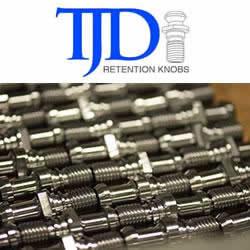Strategies to Tackle Knowledge Drain in American Manufacturing
.jpg)
In recent years, American manufacturing has experienced a remarkable resurgence fueled by heightened investment and robust industrial policies. From 2020 to 2023, corporateAmerica’s capital expenditure on manufacturing increased from $29B to $50B, growing at nearly 60% over three years. Yet, despite the influx of capital promising prosperity, the industry is confronted with a daunting challenge: a growing gap between investment and available workforce. Nowhere is this tension more palpable than in the emblematic Midwest, historically renowned as the heart of American manufacturing but now grappling with a scarcity of skilled labor.
Retiring Workforce and Institutional Knowledge Drain
The statistics paint a stark picture: Between 1990 and 2019, the Midwest witnessed a staggering loss of 1.1 million manufacturing jobs, highlighting a troubling trend of dwindling workforce participation. Compounding this issue is the looming specter of an aging workforce, with a significant portion of manufacturing employees over the age of 55. As these seasoned workers approach retirement, they take with them decades of invaluable institutional knowledge, leaving behind a void that threatens the industry's sustainability.
The imperative for American manufacturing is clear: to thrive in the face of labor shortages, it must learn to do more with less. Fortunately, firms across the Midwest are rising to the challenge, focusing their efforts on mitigating knowledge drain – a critical aspect of retaining expertise within the sector.
Strategic Solutions to Preserve Expertise
Centralization
Centralization emerges as a key strategy in this battle against knowledge loss. By documenting and centralizing the experience and institutional knowledge of veteran workers, manufacturers can ensure that critical insights are preserved and accessible to future generations of employees. Whether through step-by-step process instructions stored on cloud platforms or shared digital repositories for reference drawings, centralization facilitates seamless knowledge transfer, safeguarding against the loss of expertise due to retirements.
Cross-Departmental Collaboration
Moreover, centralization fosters cross-departmental communication, addressing another pressing concern for manufacturers. In a landscape where engineering, fabrication, and procurement departments operate in silos, effective communication is essential for streamlining operations and maximizing efficiency. By adopting shared digital platforms that transcend departmental boundaries, companies can break down communication barriers, fostering collaboration and synergy across the organization.
Digital Innovation
Embracing digital innovation is another avenue through which manufacturers can mitigate knowledge drain and enhance workforce productivity. Leveraging AI-driven tools, companies can optimize existing processes, streamline procurement procedures, and extract actionable insights from vast datasets. For instance, AI-enabled procurement platforms can centralize supplier data, providing comprehensive insights into purchasing history and supplier performance. A similarity search function makes this data easily accessible, thereby streamlining decision-making and mitigating the risk of information loss.
However, the journey towards knowledge preservation and operational efficiency requires commitment and investment. While the dividends of these efforts are evident, widespread adoption of such tools and methodologies remains a challenge within the industry. Companies must recognize the importance of investing time and resources into these initiatives to reap the long-term benefits of enhanced productivity and resilience.
As labor shortages continue to pose significant challenges for American manufacturing, the resilience and ingenuity displayed by Midwestern manufacturers serve as a beacon of hope. By prioritizing knowledge preservation, embracing digital innovation, and fostering collaboration, the industry can navigate the complexities of the modern landscape and emerge stronger than ever before. As the Midwest leads the charge, the rest of the country would be wise to follow suit, ensuring the continued vitality and prosperity of American manufacturing for generations to come.
After graduating from the University of Tokyo, Yushiro Kato started his career at McKinsey & Company, Inc. where he led the procurement and IoT practice in the manufacturing industry as an Engagement Manager. In November 2017, he founded CADDi, Inc., a manufacturing platform which automatically matches buyers and suppliers, under the mission of “Unleash the potential of manufacturing.”
Comments (0)
This post does not have any comments. Be the first to leave a comment below.
Featured Product

